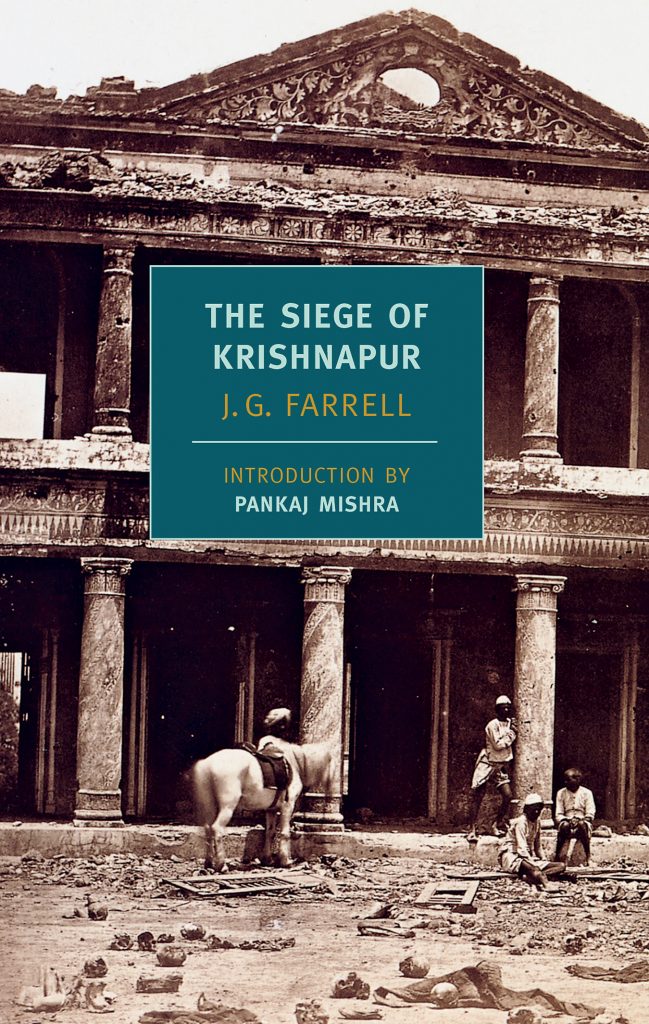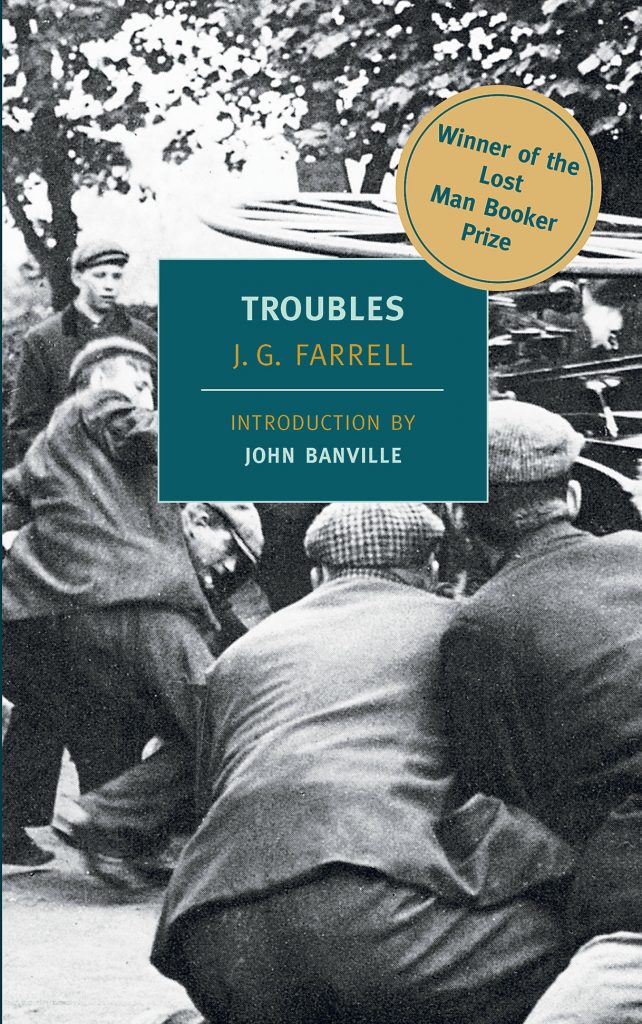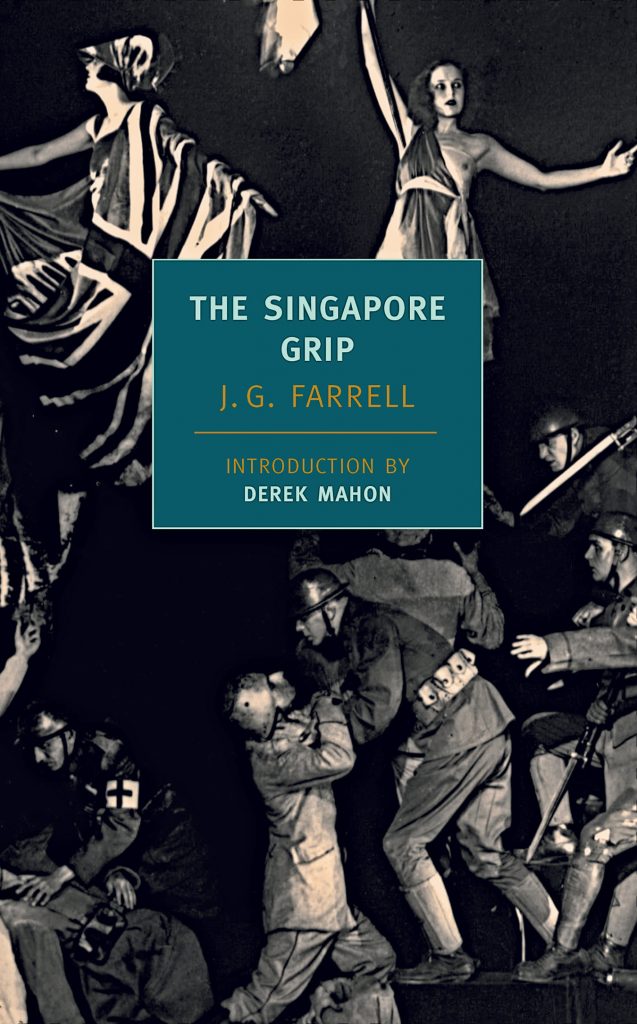It is somewhat disconcerting, especially for someone who considers himself reasonably well read in modern fiction, to learn of a writer, previously unknown to him, with an established reputation and some of fiction’s most prestigious prizes. Such was my experience when I discovered work of J. G. Farrell.
An Anglo-Irish writer, Farrell is best known for his Empire trilogy, three novels that chart the decline of the British Empire through three seminal events: the Indian Rebellion in 1857; the “Troubles” in Ireland, from 1919 to 1921; and the surrender of Singapore to Japanese forces in 1942. These are historical novels, but Farrell is interested not merely with fleshing out the past but also with historiography, the very nature of history as a record of events. Embedded in each novel are actual historical figures, newspaper articles, letters, and other “facts” that extend the thematic range, placing Britain’s political problems in a global context, as well as the examination of the relationship between word and world, between messy private lives and ordered public narratives—in short, with the inevitable gaps between reality and accounts of reality.
Troubles (1970) is centered in the decaying, aptly named Majestic Hotel in a small town in Ireland, once a fashionable resort with a wealthy Anglo-Irish clientele, now a comic-Gothic ruin with innumerable rooms; labyrinthine corridors; a handful of old, decrepit, mostly female guests; and a small army of poor Irish servants. The proprietor, fiercely pro-British and anti-Irish, finds himself and his hotel caught between the violent actions of Irish rebels and Britain’s equally violent retaliations, a conflict that will lead eventually to the creation of the Republic of Ireland and the partition of the northern counties.
The Siege of Krishnapur (1973) recounts the series of rebellions in India mainly by British-trained Indian soldiers against the British presence in and control of the country, climaxing in a three-month siege by Indian forces of the city of Lucknow (here fictionalized as Krishnapur) and its British officials and residents. Farrell writes particularly well of people in extreme conditions, under attack, under siege, faced with diminishing supplies, safety, health, hope. Diminishing as well is the credibility of the Victorian meta-narrative of empire, of the rightness and inevitability of British civilization dominating the world.
His final completed work, and the third novel of the trilogy, The Singapore Grip (1978), is to my mind the most substantial. In this novel, too, a small British contingent, mostly rubber tycoons and their families, is threatened by and progressively garrisoned against an alien reality. Like the native Irish or the natives in India, the locals here are often only sketchily presented. This is stylistically fitting, since the British in each case never really see those they rule and employ as fully human beings, a realization that would impede Britain’s economic and material interests. But the greater obstacle at hand is the impending Japanese invasion. The eventual loss of “Fortress Singapore,” the symbol of British financial and military supremacy in the Far East, resulted in what Churchill called “the worst disaster and largest capitulation in British history,” and Farrell renders well both the drama and the costs.
It is easy, with hindsight, to expose the blindness and fallacies of the Empire, and Farrell’s irony and parody prove sharp tools, but in each novel, he avoids simplistic judgments. Even the admirable characters in the novels are complex, flawed, and fallible. The best of them manage to retain essentially humane values, accept responsibility for their immediate surroundings, and try to do simply what needs to be done in the moment, a practical morality perhaps best seen in the multi-ethnic fire brigades fighting losing battles to save lives and property as Singapore crumbles.
The Siege of Krishnapur won the Booker Prize in 1973. Almost 40 years later, Troubles won the Lost Man Booker Prize, retroactively awarded because of an administrative change in 1970 that had excluded many worthy novels from the competition that year. That prize, however, was awarded posthumously. In 1979, Farrell, only 44, was drowned while fishing near his home in Ireland. But a prize for a reader remains: three novels that can each stand successfully alone and, whether alone or as a group, offer the discovery of a rich reading experience.











